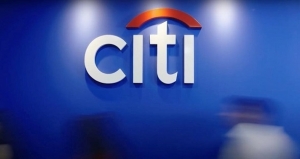Finance a perfect sector for application of AI
Financial firms are increasingly using sophisticated technology to deliver their services and manage their operations, and that tech is often a vector of competitive differentiation. Banks were also early movers in the first technology wave.
 |
In reference to a recent Citi Treasury and Trade Solutions (TTS) Client Survey, the report shows that there is a clear consensus on the use and applicability of AI. An overwhelming 93 per cent of financial institution respondents said adoption of AI could improve profitability in the next five years, based on productivity gains.
Applying the survey results to Citi’s forecast of the global banking sector profit pool suggests AI could boost the total banking industry’s 2028 profits by 9 per cent, or $170 billion, from just over $1.8 trillion to close to $2 trillion.
AI could drive productivity gains for banks by automating routine tasks, streamlining operations, and freeing up employees to focus on higher value activities. GenAI will likely have a big impact on internal facing tasks such as content and information management, coding, and software development.
AI is likely to be adopted faster by digitally native, cloud-based firms, such as FinTechs and BigTechs, with agile incumbent banks as fast followers. Many incumbents, weighed down by tech and culture debt, may lag in AI adoption and lose market share.
All technology goes through cycles, including hype, disillusionment, and then mass adoption. AI expectations have been high since the second quarter of 2023.
As financial firms grapple with the transition from ‘Wow’ to ‘How’, the gap between hype and mass production currently remains wide. Many of the largest technology companies are in an arms race to become the AI provider of choice to banks and companies.
AI in finance is largely at a proof of concept stage, but it is rapidly transitioning.
The Citi report discusses what use cases are likely in the 2024-25 period and beyond. The tech adoption strategy of most incumbents involves adding it on top of existing products or using the new technology to improve productivity. Startups, by contrast, use new technology to unbundle what incumbents do.
Finance, in a world of AI-powered agents, bots and beyond, will likely face change across the board. By 2030 or before, AI-powered bots will likely play a significant role in banking and finance.
“Citi’s latest GPS report outlines the revolutionary potential of Gen AI in financial services given the access to rich data, the ability to enhance efficiency, and the ability to improve decision-making. The integration of GenAI will drive innovation, significantly improve customer experience and reshape the competitive landscape,” said Ramachandran A.S., Citi Vietnam’s country officer and head of Banking.
 | Thailand promotes AI application The Digital Economy and Society (DES) Ministry of Thailand has outlined its “quick wins AI & cloud policy” to promote artificial intelligence (AI) adoption and support domestic AI technology providers. |
 | Citi wins three Environmental Finance awards Citi was recognised by Environmental Finance magazine, a leading publication in the sustainable debt finance market, as lead manager of the year for corporate green bonds, lead manager of the year for corporate sustainability bonds and lead manager of the year for supranational, sub-sovereign and agency green bonds. |
 | Citi report focuses on future of healthcare A Citi report serves as essential reading for those eager to explore the bright future of the global healthcare system. |
What the stars mean:
★ Poor ★ ★ Promising ★★★ Good ★★★★ Very good ★★★★★ Exceptional
 Tag:
Tag:
Related Contents
Latest News
More News
- Cashless payments hit 28 times GDP in 2025 (February 04, 2026 | 18:09)
- SSIAM and DBJ launch Japan Vietnam Capital Fund (February 04, 2026 | 15:57)
- Banks target stronger profits, credit growth in 2026 (February 04, 2026 | 15:43)
- Vietnam on path to investment-grade rating (February 03, 2026 | 13:07)
- Consumer finance sector posts sharp profit growth (February 03, 2026 | 13:05)
- Insurance market building the next chapter of protection (February 02, 2026 | 11:16)
- NAB Innovation Centre underscores Vietnam’s appeal for tech investment (January 30, 2026 | 11:16)
- Vietnam strengthens public debt management with World Bank and IMF (January 30, 2026 | 11:00)
- Corporate bond market poised for stronger growth cycle (January 28, 2026 | 17:13)
- Vietnam's IPO market on recovery trajectory (January 28, 2026 | 17:04)




























 Mobile Version
Mobile Version